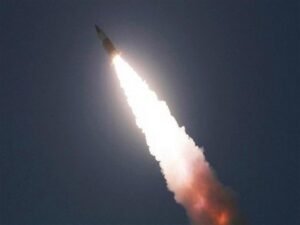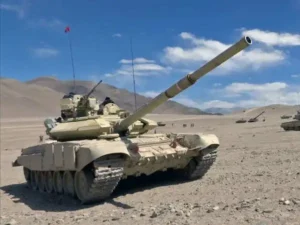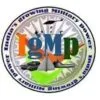Source : The New York Times
 |
| Representative Image |
In July, when a critical deal was brokered by the United Nations and Turkey to free up millions of pounds of desperately needed Ukrainian grain, India played an important behind-the-scenes role in helping sell the plan to Russia, which had been blockading the grain ships.
Two months later, when Russian forces were shelling the Zaporizhzhia nuclear plant in Ukraine, leaving the world anxious about a nuclear catastrophe, India stepped in again and asked Russia to back off.
Throughout the Ukraine war, India has quietly assisted during a few pivotal moments like these. This week, India’s foreign minister is traveling to Moscow for meetings with Russian officials on economic and political issues. Diplomats and foreign-policy experts are watching closely to see if India can use its unique leverage as one of the world’s largest countries that is a friend to both East and West to press Russia to end its war in Ukraine.
Officials within the Indian government have already been discussing what role India might play in peacemaking efforts, when the time is right.
Russia and Ukraine are far from negotiating with each other; Ukraine feels it has momentum on the battlefield and is in no mood to talk, and Russia is hardly relenting either. But the widespread belief is that if the fighting reaches a stalemate, and the energy crisis makes life really miserable in Ukraine and across Europe this winter, the prospect of a negotiated settlement or at least a cease-fire may possibly arise. That could open up a role for an enterprising neutral country or some small group of them to try to broker peace.
Earlier this year, France’s president, Emmanuel Macron, floated the idea of hosting peace talks along with India’s leader, Narendra Modi, according to two Indian officials. The Franco-Indian effort never materialized. But it showed that India is increasingly viewed as a potential peacemaker with access to both sides.
“Were Russia and Ukraine to express interest in having a neutral third party mediate,” said Jeff M. Smith, director of the Asian Studies Center at The Heritage Foundation, a Washington research institute, “India would be a strong candidate with credibility on both sides.”
India has long tried to balance its ties to Russia and the West. During the 1950s and ’60s, it was a leader of the Non-Aligned Movement, a loose alliance of the world’s poorest and smallest nations that tried to navigate a path through the Cold War without joining one side or the other.
Even as India has grown — it’s now the second most populous country after China and the world’s fifth largest economy — it is still trying to squeeze itself through a geopolitical needle. It has cultivated closer relations with the United States but Moscow remains a trusted partner, a key energy supplier and the source of much of the Indian military’s weaponry.
Mr. Modi seems to enjoy a good rapport with Russia’s leader, Vladimir V. Putin, with whom he shares certain strongman characteristics. He can speak to Russia directly, which may be why Mr. Macron approached Mr. Modi about joint peace talks.

But the Ukraine crisis and the escalating tensions between Russia and the West are testing India’s tightrope act. It continues to buy Russian oil, lots of it, which angers Ukraine and the United States. And it has refused to support resolutions at the United Nations that have condemned Russia’s aggression.
As they faced pressure from the West, Indian officials all along privately maintained that calling out Russia would achieve little, while staying neutral — at least in public — could come in handy in efforts to end the war. So while India has refrained from directly criticizing Russia, it has expressed concern about the violence and suffering the invasion has caused.
At a regional summit in Uzbekistan in September, Mr. Modi said the whole world was paying the price and told Mr. Putin, “Today’s era is not of war.” He said he wanted “to discuss how we can move forward on the path of peace.”
Mr. Modi, India’s most powerful prime minister in decades, has been trying to refashion the country’s tradition of nonalignment into a more commanding strategy — an “all alignment” of sorts. Peacemaking could carve a more prominent place for India in the global order and possibly bring it closer to a long-sought prize of a fairer power distribution — a permanent seat on the United Nations Security Council.
And trying to solve the world’s biggest crisis seems to have appealed to Mr. Modi’s ambitions to go down in history as one of India’s greatest leaders.
But when Mr. Macron approached Mr. Modi about peace talks, Indian officials said it wasn’t clear what the West wanted as an ultimate settlement for the Ukraine war: Should Ukraine cede territory to Russia? Who would enforce any cease-fire that was struck? Indian officials said that after Mr. Macron got swept up in his re-election campaign, the idea faded anyway.

Indian officials have recently dropped hints about playing a bigger mediating role. At a conference last month in New Zealand, S. Jaishankar, India’s foreign minister, asked, “How do you get to facilitate at least the ability for the participants in the conflict to sit down and talk?”
“Whatever we can do,” he said, “we will be willing to do.”
Mr. Jaishankar, who holds a Ph.D. in nuclear diplomacy, has been the chief theorist, as well as the chief implementer, of India’s new foreign-policy approach. When not shuttling between world capitals, he gives frequent and candid lectures at universities and research institutions. In his 2020 book “The India Way,” he said India’s rise would be determined by how it navigates a “world of naked self-interest.”
India sees an expansionist China, whose troops have clashed with the Indian military high in the Himalayas, as the No. 1 threat. This has shaped how India has reacted to Russia’s invasion of Ukraine. India doesn’t want to openly antagonize Moscow, a reason often cited for why it has abstained on the United Nations resolutions critical of Russia. Russia and China have become leading members of the critics of the West and say they have a “special relationship,” and India is wary about pushing Russia any closer to China.
India could play a significant role if Russia reaches a point in the conflict where it is looking for “friends or partners” to bridge the gap with the West, said C. Raja Mohan, a senior fellow at the Asia Society Policy Institute in New Delhi. Otherwise, India’s facilitating role between Russian and Ukraine would be limited, he said.
“Fundamentally, it is still a European question, it is a trans-Atlantic question,” Mr. Mohan said.
Mr. Putin, though, has been complimentary about India and China’s push for dialogue, saying, “These are our close allies, partners, and we respect their position.”
Another possibility that diplomats have floated is a joint mediation effort led by India, Israel and the United Arab Emirates, nations a sliver of India’s size but geopolitical players that have similarly tried to stay neutral in the Russia-Ukraine war.
“The fact that these issues are being discussed and that some officials are contemplating an India, Israel, U.A.E. mediation effort is a significant development,” said Kenneth Juster, a former American ambassador to India.
“That these three countries could be working together and possibly approaching Russia to mediate its dispute with Ukraine,” he said, “illustrates the fluidity of the international system and the changes that have occurred in it.”
He added that the Indian foreign service has “very skillful diplomats,” and that if they offered to help with talks, when Russian and Ukraine were ready for them, “that would be good.”

Negotiations in March brokered by Turkey’s leader, Recep Tayyip Erdogan, failed. Since then the Ukrainians have only suffered more. More mass graves have been discovered. More remains of civilians brutalized by Russian forces have been unearthed. More Russian missiles have slammed into cities, casting countless Ukrainians into darkness and cold.
This leaves just about all Ukrainians, from President Volodymyr Zelensky on down, dead set against negotiations. Ukrainians are also perhaps more skeptical about India, largely because India keeps buying Russian oil, which the Ukrainians say helps finance the bloodshed in their country. Yuri Makarov, the chief editor of the Ukrainian national broadcasting company and a popular commentator based in Kyiv, was surprised to hear that Indian officials had been contemplating peace efforts.
“I wonder if they have their own idea of the real Ukrainian situation,” he said, adding that he had yet to meet any Indian diplomats, intellectuals or journalists in Kyiv.
His instinct, he said, was that Israel or Turkey would be better informed mediators, if negotiations were to resume.
Still, Mr. Makarov said, “Russia doesn’t want Ukraine to exist.”
He added, “So I don’t see an option for talks, sadly.”








